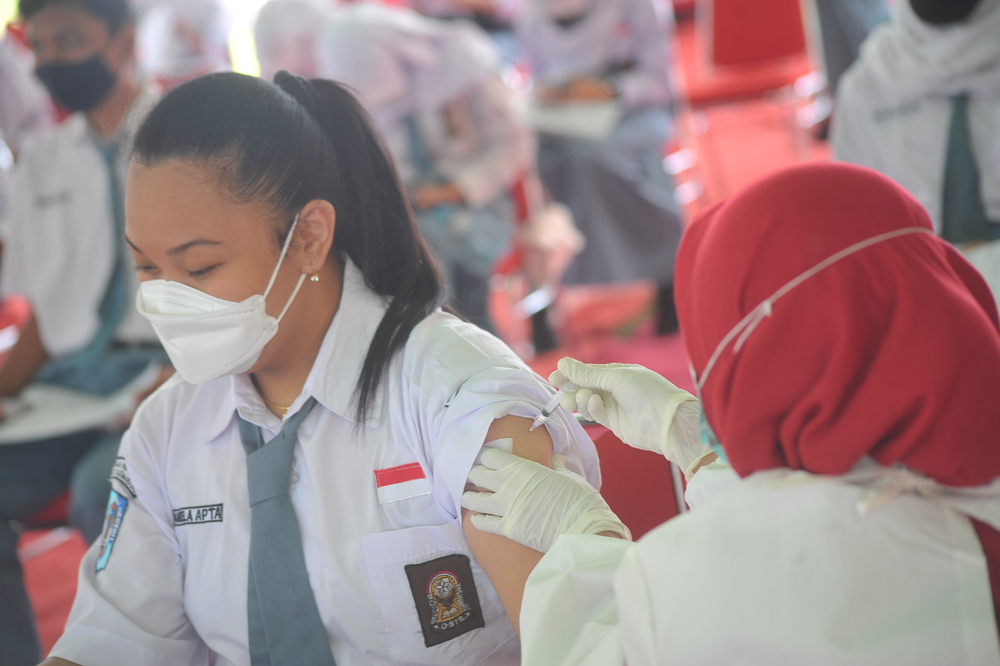In a bold and strategic shift in managing COVID-19, Indonesia’s Health Ministry has announced a sweeping reform in its approach to vaccinations.
This move was triggered by the pressing need to expedite the nation’s inoculation efforts against the coronavirus. By scrapping the rigid set of rules that previously dictated specific vaccine brands for different stages of immunisation, the ministry is now granting its citizens the option to receive any generally approved vaccine for their primary and booster doses.
Health Ministry spokesman, Mohammad Syahril, highlighted the motive behind this simplification as an attempt to increase national vaccine coverage for these vital doses. This systemic overhaul signifies Indonesia’s commitment to evolving its approach to combat the pandemic and could significantly improve the nation’s fight against COVID-19.
Complexities of Previous Rules: A Barrier to Vaccination
The previous protocol enacted by the ministry was fraught with complications. The stringent requirement that both the first and second doses of the vaccine were to come from the same brand added unnecessary complexity to the immunisation process. In addition, the booster dose had to belong to a preapproved set of corresponding brands.
This rule posed significant challenges for many Indonesians. Regular vaccine shortages meant that the necessary brand was not always readily available, thus creating inadvertent barriers to immunisation. Moreover, a trend of vaccine brand selectivity amongst the populace added to the complexity of this already convoluted process. The revamped approach incorporates brand flexibility. Therefore, it is expected to alleviate these issues and encourage a larger number of Indonesians to complete their vaccination series.
Subheading: The Numbers Speak: Stagnant Vaccination Rates Need a Push
Despite the government’s efforts, Indonesia’s rates of primary COVID-19 vaccination and booster vaccination, as proportions of the total population, have remained disappointingly stagnant for months. The two-dose primary vaccination coverage has seen a meagre increase of just over 2 percentage points over the last 12 months. It has moved from 72.2% last May to the current 74.5%. This is a critical metric in assessing the nation’s immunisation progress. This percentage translates to around 174.8 million individuals out of Indonesia’s more than 230 million population.
Furthermore, the coverage of third doses has stubbornly hovered around 37% since December 2022. The Indonesian government has attributed this sluggish progress in vaccination to the country’s comparatively low number of infections. Yet, health experts emphasise the necessity of enhancing vaccination efforts to prevent potential future surges in cases.
The Road to Endemic Status: A Delicate Balancing Act
This follows the World Health Organization’s recent proclamation that COVID-19 no longer constitutes a global health emergency. Subsequently, the Health Ministry is now focused on developing a comprehensive plan to manage COVID-19 as an endemic disease.
However, this new endemic strategy may introduce financial implications for the populace. It suggests that individuals may have to bear the cost of vaccines and treatment for the disease. Individuals could manage this either directly or through insurance, such as the National Health Insurance (JKN) programme.Furthermore, as part of this transition, the government is also considering lifting the currently mandatory testing and vaccination requirements for travel.
As Indonesia navigates this new path, health experts are voicing their concerns and urging policymakers to proceed with caution. They warn that these apparent reductions in protective measures might lead the public to disregard the enduring threat of COVID-19. Balancing the restoration of normality with the preservation of public health is thus a paramount challenge facing the Indonesian government as it adapts to the new reality of COVID-19 as an endemic disease.













